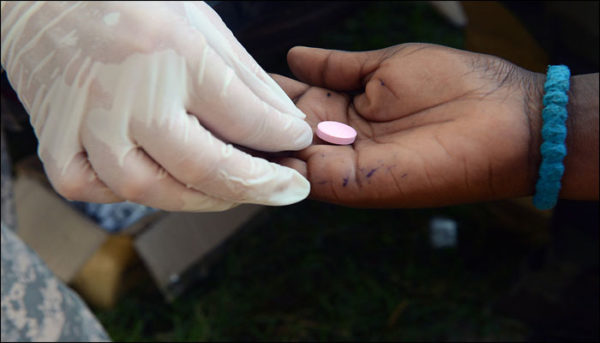Worm infestation is a common health issue, especially among young children. The spread of parasitic worms occurs through untidy hands, unhygienic practices and poor sanitation facilities.
For example, a simple lick from your pet, a barefoot walk on your lawn, swimming in a reservoir or a pool with untreated water or negligence on your part to wash hands thoroughly before eating or preparing food after gardening or unwashed salad or untreated drinking water or milk or fluids or under cooked meat, the list is endless and the opportunities for worms to enter your body are manifold.
Barely visible to the naked eye, these worms can cause a lot of discomfort and illnesses which are varied in intensity and seriousness. An untreated worm infestation can even prove fatal.
Millions of children around the world are infected with parasitic worms, which can harm their health, their cognitive development, their education and a brighter future.
Launched in 2005, India observes National Deworming Day annually on February 10 by the Ministry of Health and Family Welfare.
With an aim to deworm children between the ages of (1-19) at schools and anganwadi centres, an estimated 34 crore children will be administered de-worming tablets on Friday to reduce worm infestation that can stifle physical and intellectual growth. This will be one of the country’s largest single-day public health initiatives.
It is therefore important to understand what we are fighting against. Listed below are seven general facts about deworming. Have a look!
Not only children but adults too are prone to worm infestations.
Children above two years of age should be put under a regular routine of deworming to maintain good health.
Worms enter the body due to lack of hygiene.
The most common infestation are caused by the round worm, tape worm and hook worms.
Lack of appetite, tiredness, anaemia, loose bowels, vomiting is all some common symptoms of worm infestation.
Deworming every four to six months is the suggested frequency.
Deworming should be done using prescribed drugs with appropriate dosages.
For Friday’s deworming drive, the Health Ministry for the first time will also cover private schools and has asked state governments to rope them in, while it has set up 210 monitoring centres across the country to tackle adverse reactions of the tablet like stomach ache and vomiting.
India has the highest burden of worm infections in the world, with the World Health Organization estimating in 2014 that over 22 crore Indian children aged between 1 and 14 years are at risk.
“Last year, an issue had been raised that the government has been deworming children only in government schools and left out the private schools. This year, we are trying to cover private schools also which means close to additional eight crore children. Since this is the first year, we may not have 100 per cent coverage in private schools.
“This is also going to be a single-day strategy. Across the country, albendazole tablet is in place for use. It is a safe drug and we have been using it year after year and all technical experts including WHO have certified the safety and efficacy of the drug,” Union Health Secretary C K Mishra said.
The Health Ministry this year is working with the Department of School Education and Literacy and the Ministry of Women and Child Development.
He said that while 37 crore children under the age group of 1-19 years are to be administered the tablet, the Ministry this year has set a target of reaching 34 crore of them.
Mishra said that the ministry this time has completed the mapping in all states and depending on the worm load, it will be decided whether it will be an annual or biannual exercise.
“31 states and UTs will implement this programme in February 2017. The rest will do it in subsequent months. Three rounds (of deworming) we have already had. In one round in 2015 and two rounds in 2016, we have dewormed 40 crore children. This year alone, we are trying to reach that figure.
“Three new things which have critically come up this year are expanded coverage, inclusion of private schools and this decision is far more scientific based on the worm load study. This is an ambitious programme…Link it with open defecation free status. The more that (defecation free) happens, the less of worm infestation there will be,” Mishra said.



Leave a reply